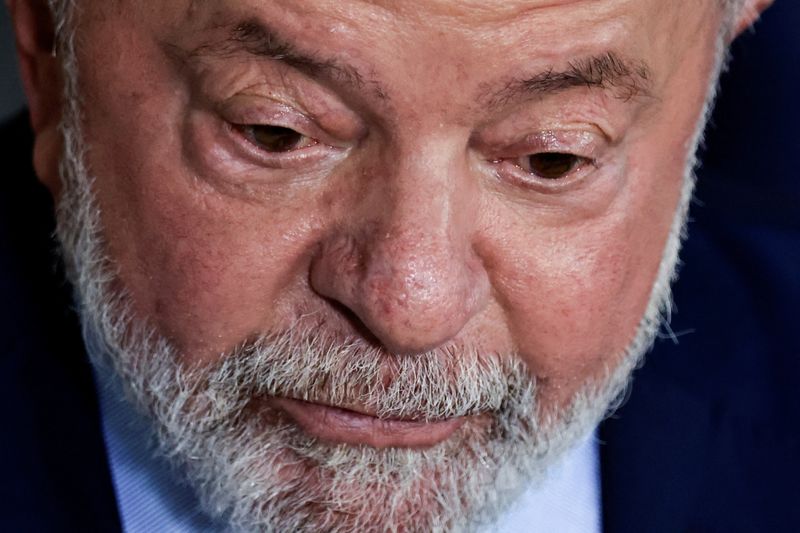BRASILIA (Reuters) - Brazilian President Luiz Inacio Lula da Silva, who left office with record popularity in 2010, is not doing so well in his new term, and his approval ratings are slipping steadily, a new poll showed on Friday.
Despite some recent good news on the economic front, the number of Brazilians who rate his government as great or good has dropped to 37% this month from 39% in April and 41% in March, according to a poll by IPEC published in the O Globo newspaper.
Those who see his government as bad or very bad have risen to 28% from 26% and 24% in the previous two IPEC polls.
Lula's approval rating even dipped in the poor Northeast of Brazil, his traditional stronghold and where he won most votes against former hard-right President Jair Bolsonaro in the elections last October.
IPEC CEO Marcia Cavallari said the slippage in Lula's approval rating was to be expected at the start of a government that took office in January as voters adjust their hopes to reality.
"The effect of some recent positive economic indicators may not yet have been perceived in practice by voters," she said.
Brazil's economy grew more than expected in the first quarter and inflation is slowing, hitting a 2-1/2-year low, which is good news for consumers.
Lula's minority government has had trouble forming a political base in Brazil's conservative Congress, where the powerful farm lobby has moved to block his promises on the environment and protection of Indigenous land rights.

Approval of the way Lula governs has slipped to 53% from 54%in April and 57% in the first poll in March, while disapproval has increased to 40% now from 37% and 35% previously.
IPEC, formerly known as the IBOPE polling firm, surveyed 2,000 people between June 1-5 across Brazil.